Hertz van Rental
We're supposed to post photos?
Anyone can give a crit because it is nothing more than a personal opinion.
This means that any crit is a valid crit.
But just because something is valid it does not mean that it is of value.
Opinions are often rooted in ignorance or misunderstanding thus an opinion based on inaccurate knowledge is not of much value.
For example: a person knows nothing of Physics. Instead they believe in magic pixies. You ask them why the sky is blue and they tell you that it is because the magic pixies paint it that colour.
This does not help you with your question but it does tell you that the person you have asked is probably certifiable.
The same holds true for photographic criticism.
If you ask for an opinion you may get lots but much of it may be of no use as the person giving it may know less about Photography than you do. Therefore people asking for criticism need to apply their own critical faculties to the answers they get.
If a response helps you with a problem then that response is of value.
If a response does not help you with a problem then that response has no value.
When you are starting out in Photography you will find that almost all crits have at least some value to you.
As you improve and progress then you will find that fewer and fewer people can help you. But by that time you have generally developed the ability to know who those people are.
Note: In this wonderful digital age one should try to avoid making comments on exposure and contrast.
You view the image on your monitor and they view it on theirs.
It may look fine on one but not the other.
This is because people rarely calibrate their computer monitors and very rarely have high quality monitors.
When you comment on what you see in terms of 'exposure' and 'contrast' you are often only commenting on the quality of reproduction on your monitor.
And even when you do calibrate your monitor and it is of good quality there are other factors which affect what you see.
For example: I use Macintosh. Their monitors use a higher Gamma setting that the average PC. Therefore images I adjust using my set up will tend to look too dark with poor contrast on a PC.
And this is quite apart from all the compression and expansion (often with a degree of information loss) that digital images are subject to when passed around the Interweb.
This means that any crit is a valid crit.
But just because something is valid it does not mean that it is of value.
Opinions are often rooted in ignorance or misunderstanding thus an opinion based on inaccurate knowledge is not of much value.
For example: a person knows nothing of Physics. Instead they believe in magic pixies. You ask them why the sky is blue and they tell you that it is because the magic pixies paint it that colour.
This does not help you with your question but it does tell you that the person you have asked is probably certifiable.
The same holds true for photographic criticism.
If you ask for an opinion you may get lots but much of it may be of no use as the person giving it may know less about Photography than you do. Therefore people asking for criticism need to apply their own critical faculties to the answers they get.
If a response helps you with a problem then that response is of value.
If a response does not help you with a problem then that response has no value.
When you are starting out in Photography you will find that almost all crits have at least some value to you.
As you improve and progress then you will find that fewer and fewer people can help you. But by that time you have generally developed the ability to know who those people are.
Note: In this wonderful digital age one should try to avoid making comments on exposure and contrast.
You view the image on your monitor and they view it on theirs.
It may look fine on one but not the other.
This is because people rarely calibrate their computer monitors and very rarely have high quality monitors.
When you comment on what you see in terms of 'exposure' and 'contrast' you are often only commenting on the quality of reproduction on your monitor.
And even when you do calibrate your monitor and it is of good quality there are other factors which affect what you see.
For example: I use Macintosh. Their monitors use a higher Gamma setting that the average PC. Therefore images I adjust using my set up will tend to look too dark with poor contrast on a PC.
And this is quite apart from all the compression and expansion (often with a degree of information loss) that digital images are subject to when passed around the Interweb.
Last edited:



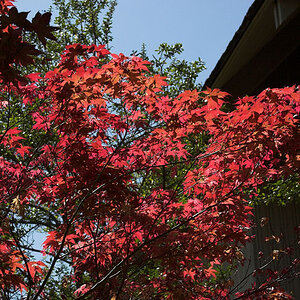
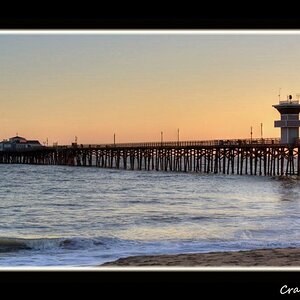


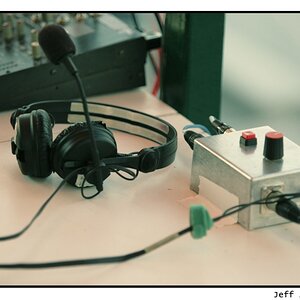

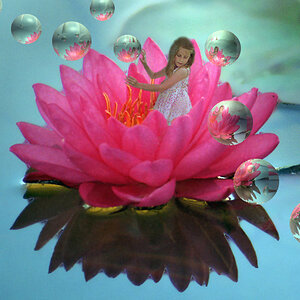
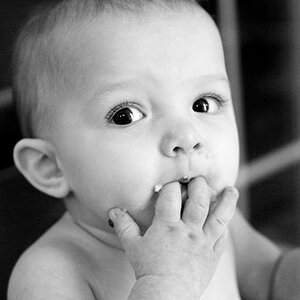
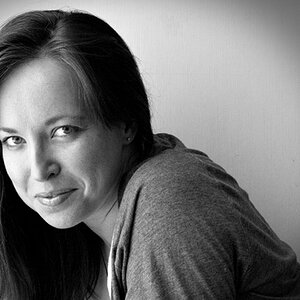

![[No title]](/data/xfmg/thumbnail/41/41862-7cc80b10f9effd079847b9dd210dbe2a.jpg?1619739925)